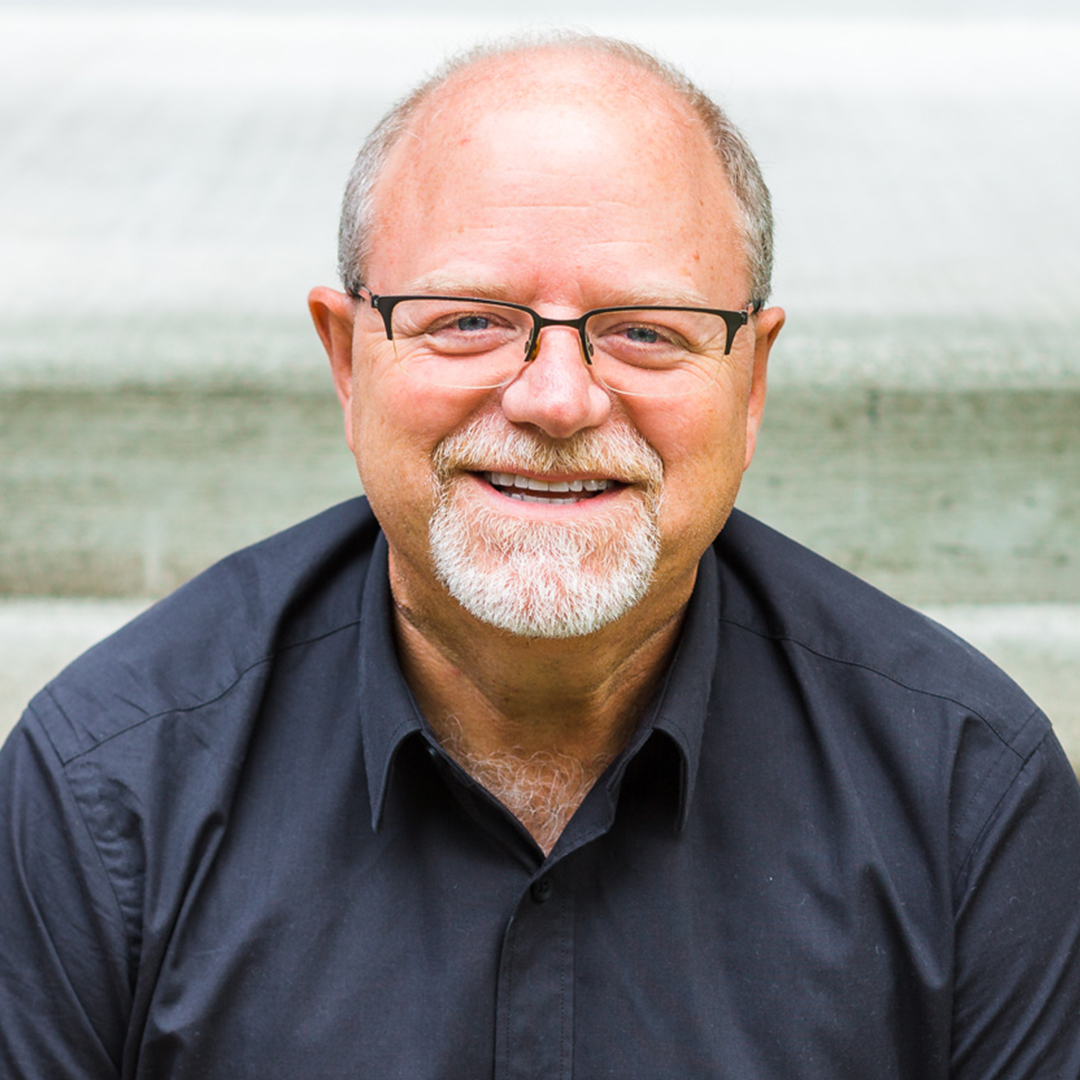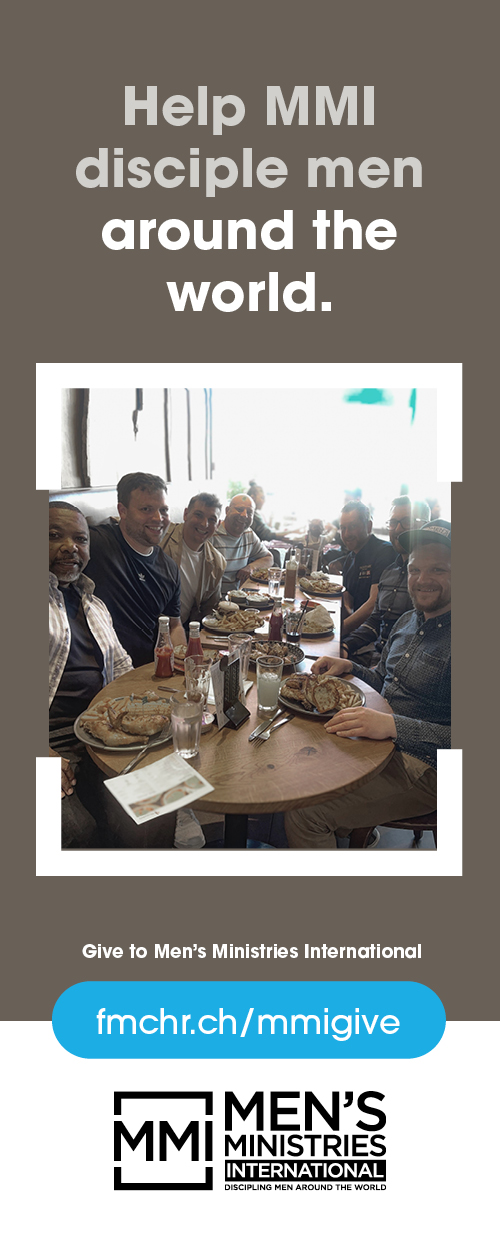
Bishop Keith Cowart
Bishop Keith Cowart, D.Min., oversees Free Methodist ministries along the Eastern Seaboard, in the South Central United States, and also in Europe and the Middle East. He was elected a bishop of the Free Methodist Church – USA at General Conference 2019. He previously served as the superintendent of the Southeast Region Conference after 21 years as the founding lead pastor of Christ Community Church in Columbus, Georgia.
by Bishop Keith Cowart
Last words are meant to make an impact. On those rare occasions when we have the gift of knowing that our words are “final” on some level — a daughter departing for college, a son’s wedding day, a pastor’s last sermon, a deathbed goodbye — we give great thought to what we will say because we want our words to count.
Just before He ascended into heaven, Jesus spoke these last words to those who had been following Him for three years, “Therefore go and make disciples of all nations, baptizing them in the name of the Father and of the Son and of the Holy Spirit, and teaching them to obey everything I have commanded you” (Matthew 28:19–20). Of all the things Jesus might have said on that momentous occasion, He chose to commission His disciples to take the message and life He had given them and give it to others throughout the world.
Jesus’ last words hearken back to the very first words spoken by God to Adam and Eve, “Be fruitful and multiply.” Just as God had breathed life into them, they were now to give life to others in a way that fills the earth with people. This is God’s way. Whether it be fish, birds (Genesis 1:22) or humans (Genesis 1:28), every species is designed to reproduce, to bring life from life. In fact, any species that does not reproduce will eventually disappear from the face of the earth.
As we continue to make our way through the five values of The Free Methodist Way, it is important that we not confuse our values with our mission. Mission defines what we do. Values describe who we are and how we go about fulfilling that mission. The central mission of every Christian and every church is to make disciples. The values of the Free Methodist Way describe the unique ways we believe God has called our ministry family to live out that mission. This distinction is important because the church will always lose its way when one or more values (as right and good as they may be) become the mission. Holiness, justice, multiplication, collaboration and revelation are not our mission, but they do speak to what we value most when it comes to how we live out our mission. In identifying Christ-Compelled Multiplication as one of our core values, we are saying we believe that multiplication is essential to disciple-making because Jesus modeled it and commanded us to follow His example.
Have you ever considered the fact that Jesus could have reached the world any way He desired? He could have spent a thousand years personally taking His message to every nation on earth. He could have waited for the digital age in order to get His message out overnight. Instead, He chose to embark on a three-year ministry journey during which He devoted the vast majority of His time and energy to 12 individuals. Jesus invested deeply in the lives of a few in order to maximize His impact on their lives and train them to do the same for others. In doing so, He was choosing to trust the process of multiplication to take the gospel to the ends of the earth.
A Wake-Up Call
In practical terms, we believe this multiplication principle should impact our movement at every level: “the found seeking the lost, disciples making disciples, leaders developing leaders, churches planting churches, and movements birthing movements.” But we must confess that of all the values in The Free Methodist Way, this one is the most aspirational. If it is ever to become a genuine value that we live out in meaningful ways, we must begin by telling the truth about our current reality:
- A quick review of our most recent annual report reveals that many of our churches have not reported a new convert in years. Very few have seen significant growth from reaching people who are not already following Jesus.
- In terms of the number of churches in our movement, the first Free Methodists planted 500 new churches in the U.S. between 1860 to 1880. Over the next 20 years, that number doubled to more than 1,000. Over the last 120 years, our total number of churches has declined to fewer than 850 churches.
- When it comes to membership, our movement climaxed in 1992 at more than 74,000. Our most recent count (2018) was just over 68,000.
- Our greatest area of growth has come in worship attendance with averages rising to more than 100,000 a few years ago, but even this figure has declined to just under 92,000 in our most recent annual report (2018).
One of the insights of the combined data is that we have reached relatively high numbers in average worship attendance, but in far fewer churches. This suggests that most of our growth is coming through a few larger churches while our overall presence across the U.S. has steadily decreased. We could allow this reality to discourage us or we can let it be a wake-up call that shakes us out of a long, spiritual slumber.
A Call to Repentance
Historians remind us that every true awakening in the church begins with repentance. Of what might we need to repent as a ministry family when it comes to living out our mission to make disciples through multiplication? On one level, we should ask in what ways we have participated in the drift of the church at large in the West:
- Have we neglected our missional imperative to be witnesses of Jesus Christ in the world, choosing instead to embrace the notion that the church exists primarily to provide services for the faithful?
- Have we been more consumed with preserving Christian culture in our nation than reaching the lost?
- Have we lost confidence in the power of the gospel to transform society through transformed lives, choosing instead to put our hope in political influence and power?
On a more personal level, it would be good to ask ourselves as Free Methodists:
- Do any vestiges of legalism remain that cause us to be more focused on what we are against than what we are for?
- Do we view the world as a dark place to be avoided rather than a mission field to be invaded?
- Is there any spiritual pride that leads us to assume that our smallness is somehow an indication of our spiritual superiority?
- Has our historical resistance to the supernatural power of the Holy Spirit robbed us of our primary means of becoming a movement that transcends human initiative and resources?
It takes courage to ask ourselves such challenging questions, but if we are truly honest in our responses, God can deliver us from the malaise of missional drift, breathe new life into our ministry family, and make us a movement once again that will have significant impact on our nation for the kingdom of God.
Becoming a Movement Again
For most of my years in the Free Methodist Church, I have heard various leaders declare that we must become a movement again or die a slow death. Such things cannot be orchestrated by mere human will but tend to happen when God’s people reach a point of desperation that compels a return to the essentials of what it means to follow Jesus.
I believe that starts with returning to our first love for Jesus and His kingdom. I say this with great personal conviction, deeply aware of my own need on this point. In recent weeks I have found myself repeatedly drawn to these declarations of the Apostle Paul:
- “For I resolved to know nothing while I was with you except Jesus Christ and him crucified” (1 Corinthians 2:2).
- “I have been crucified with Christ and I no longer live, but Christ lives in me” (Galatians 2:20).
- “For to me, to live is Christ and to die is gain” (Philippians 1:21).
- “But whatever were gains to me I now consider loss for the sake of Christ. What is more, I consider everything a loss because of the surpassing worth of knowing Christ Jesus my Lord” (Philippians 3:7–8).
I have often wondered what it would look like if we had as much passion for Jesus and His kingdom as we do for our views on the issues that have dominated our world over the past 12 months (COVID restrictions, racial tensions, partisan politics). What would happen in our churches and through our ministry family if we all got on our knees, asked God to forgive us for being distracted by non-essential issues, and totally devoted ourselves to knowing Jesus Christ and making Him known throughout the world? What is keeping us from doing exactly that?
I would also suggest that we need to rediscover the power of intentional discipleship. I will confess that for many years as a pastor of a growing church, I put my confidence in all the “organic” ways we were discipling our people: preaching, teaching, helping people find a place to serve, and getting them connected through small groups. We believed that if our folks were grounded in sound teaching and got involved in the life of the community, discipleship would happen naturally. It seemed to work for some, but not on the broad scale we expected. If Jesus understood that the multiplication of disciples requires a more intensive, life-on-life strategy, it would seem wise for us to follow His example. If we hope to see disciples multiplied throughout our movement, we must be willing to make intentional, intensive discipleship a priority in our churches.
Ironically, we can look to our own Wesleyan roots for one of the most powerful examples in church history of how such an intentional approach to discipleship can shape a movement. In his book “Marks of a Movement,” Winfield Bevins notes that one of the greatest benefits of Wesley’s emphasis on intentional discipleship through bands and classes was that it consistently produced the kind of leaders required to supply the expanding movement: “With a high commitment to discipleship, thousands of leaders emerged out of the ranks of early Methodism.” Effective leadership development is essential to any multiplying movement and is best understood as a form of advanced discipleship.
Finally, we must reject the idea that evangelism and discipleship are specialized forms of ministry for only a few believers. Luther recovered the biblical principle of “the priesthood of all believers.” More recently, many of our churches have taken up the mantra “every believer is a minister.” We would do well now to take it to the next level and recover the fundamental New Testament idea that “every believer is a missionary.” Though they certainly played a significant role, organized mission trips were not the primary reason the church grew exponentially in its early years. In His Great Commission (Matthew 28:18–20), Jesus was not so much advocating that people leave home and go somewhere else to make disciples. His command was to make disciples “in their going,” wherever that happened to be. I confess that my own discipleship journey did not include any emphasis on my personal responsibility to share my faith and make disciples. I am discovering that this is also true of many, if not most, American Christians. This is an error we must correct if we are to become a multiplying movement again.
The Jesus Way
Jesus shows us the way in Matthew 9:35–10:1. This is one of those critical moments when Jesus trained His disciples by modeling what He wanted them to do, and then compelled them to do it themselves. It is also one of those things He had in mind when He said to be “teaching them to obey everything I have commanded you” (Matthew 28:20).
Take a moment to reflect on these brief insights from that passage and prayerfully consider how God would have you respond:
- He saw. Jesus did not isolate Himself from the world but put Himself in places that allowed Him to see people. How am I intentionally and strategically finding ways to rub shoulders with those who do not yet know Jesus?
- He cared. Jesus’ response reveals what He saw when He looked at people. He responded with gut-wrenching compassion because He saw their deepest needs (lost, helpless, harassed) rather than their outward status (sinners, rebels, enemies). When I look at people, do I see them as a Republican or Democrat, a liberal or conservative, a mask-wearer or mask-shunner, a friend or enemy … or do I see persons who desperately need to know Jesus and the life-transforming power of the gospel?
- He prayed. Jesus prayed that God would raise up workers for the harvest field. We should note that He immediately followed this prayer by sending out those who were already with Him. When we pray this prayer, we should never assume the answer is that God will raise up someone else. He is praying that more will come to know Him so more can be sent, but He clearly wants us in the harvest field. In what ways have I rationalized my own unwillingness to enter the harvest field?
- He gave authority. Both here and in the Great Commission, Jesus very intentionally gave His disciples authority before He sent them out. He understood they would face significant challenges. More importantly, He knew they did not personally have the means to bring life to others. Jesus simply asked them to represent Him, to be agents through which He would do what only He can do. What fears have prevented me from embracing Jesus’ call to represent Him in my own mission field? Do I believe He is with me and will give me everything I need to do it effectively?
Can you imagine how our movement would multiply if every Free Methodist followed Jesus’ example? Church historian Michael Green describes what it looked like in the early church:
“This [sharing the gospel] must often have been not formal preaching, but informal chattering to friends and chance acquaintances, in homes and wine shops, on walks, and around market stalls. They went everywhere gossiping the gospel; they did it naturally, enthusiastically, and with the conviction of those who are not paid to say that sort of thing. Consequently, they were taken seriously, and the movement spread” (“Evangelism in the Early Church”).
Now that sounds like the kind of pandemic we would all want to spread! No masks required.
+

Bishop Keith Cowart
Bishop Keith Cowart, D.Min., oversees Free Methodist ministries along the Eastern Seaboard, in the South Central United States, and also in Europe and the Middle East. He was elected a bishop of the Free Methodist Church – USA at General Conference 2019. He previously served as the superintendent of the Southeast Region Conference after 21 years as the founding lead pastor of Christ Community Church in Columbus, Georgia.










Trackbacks/Pingbacks